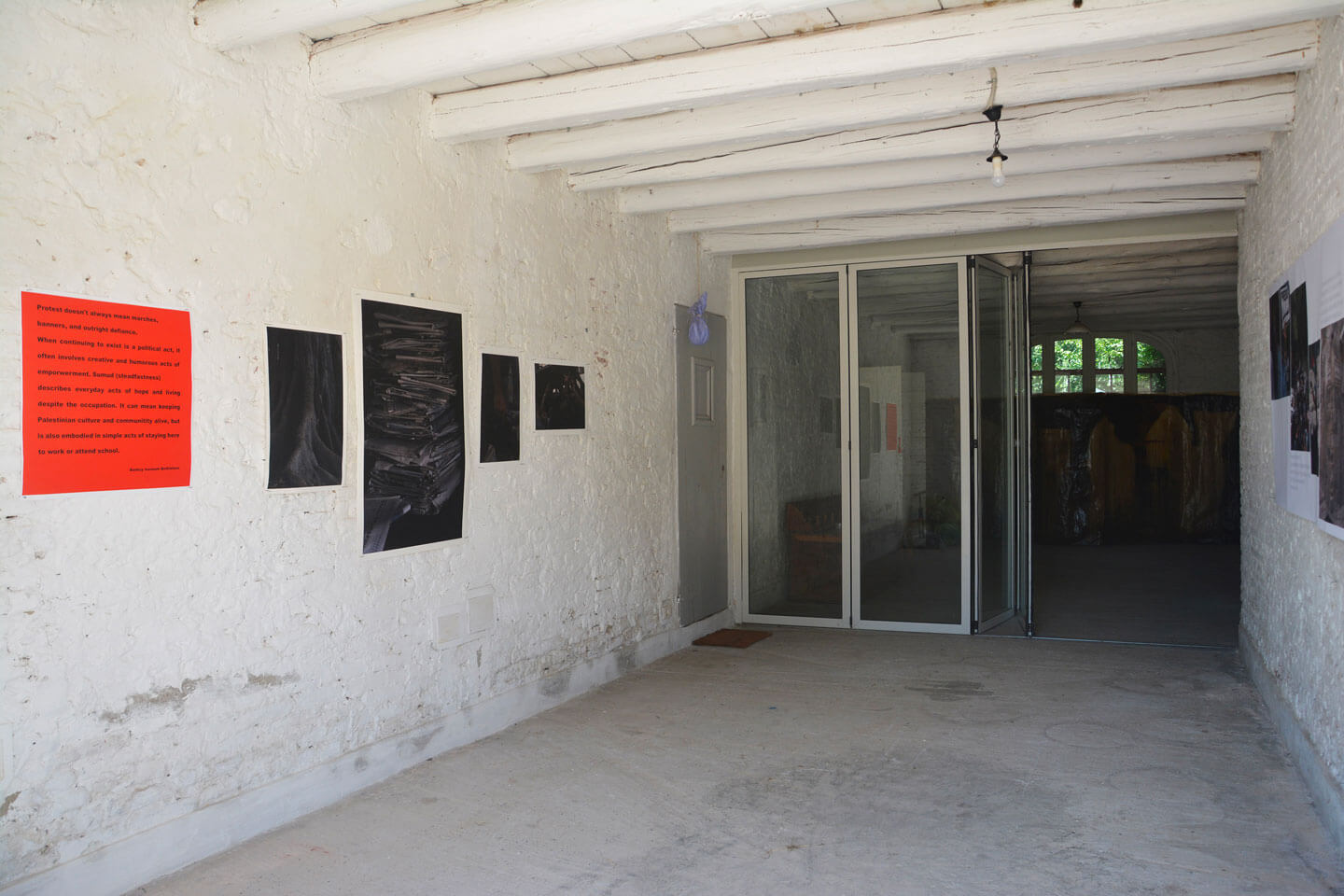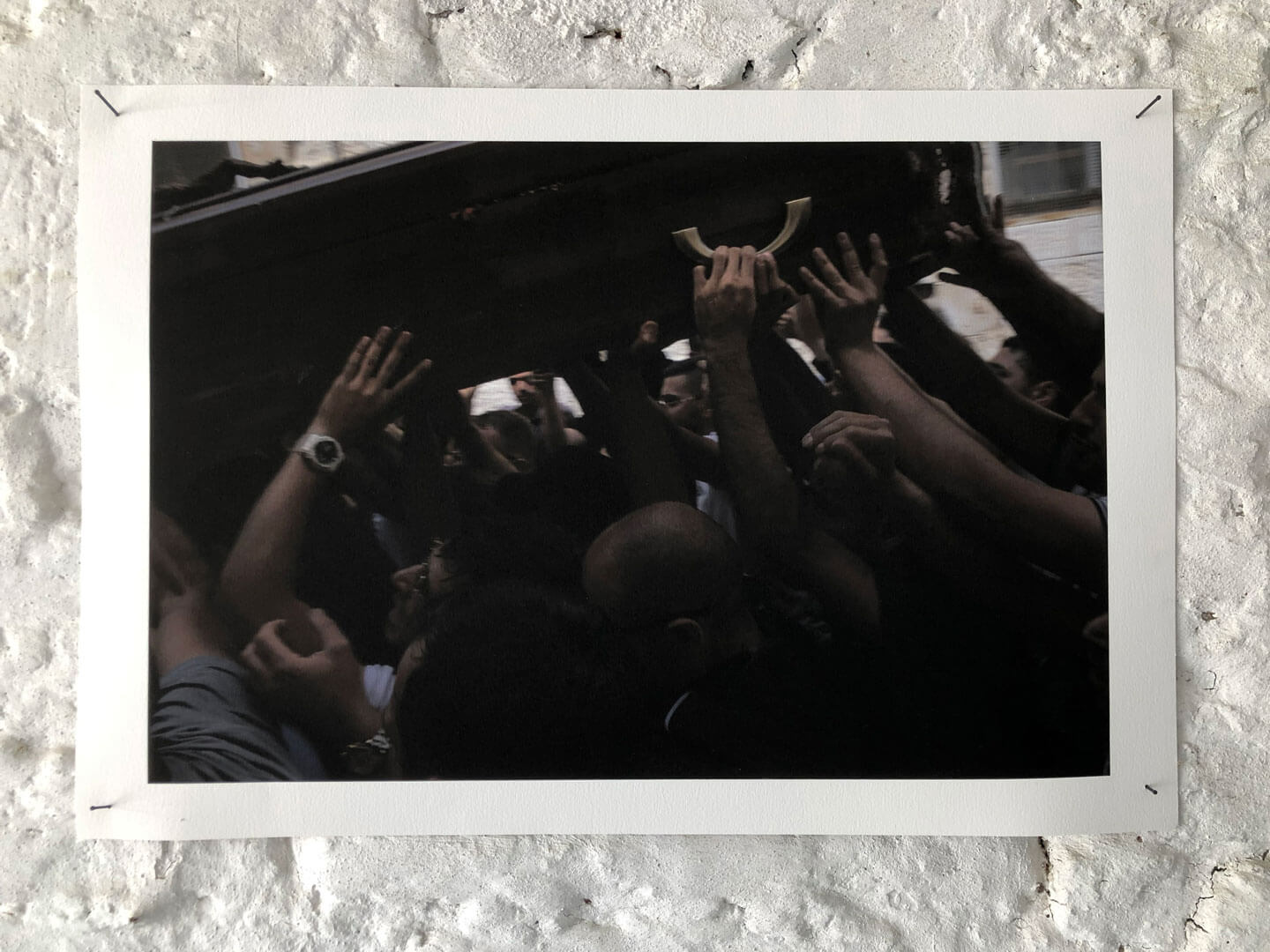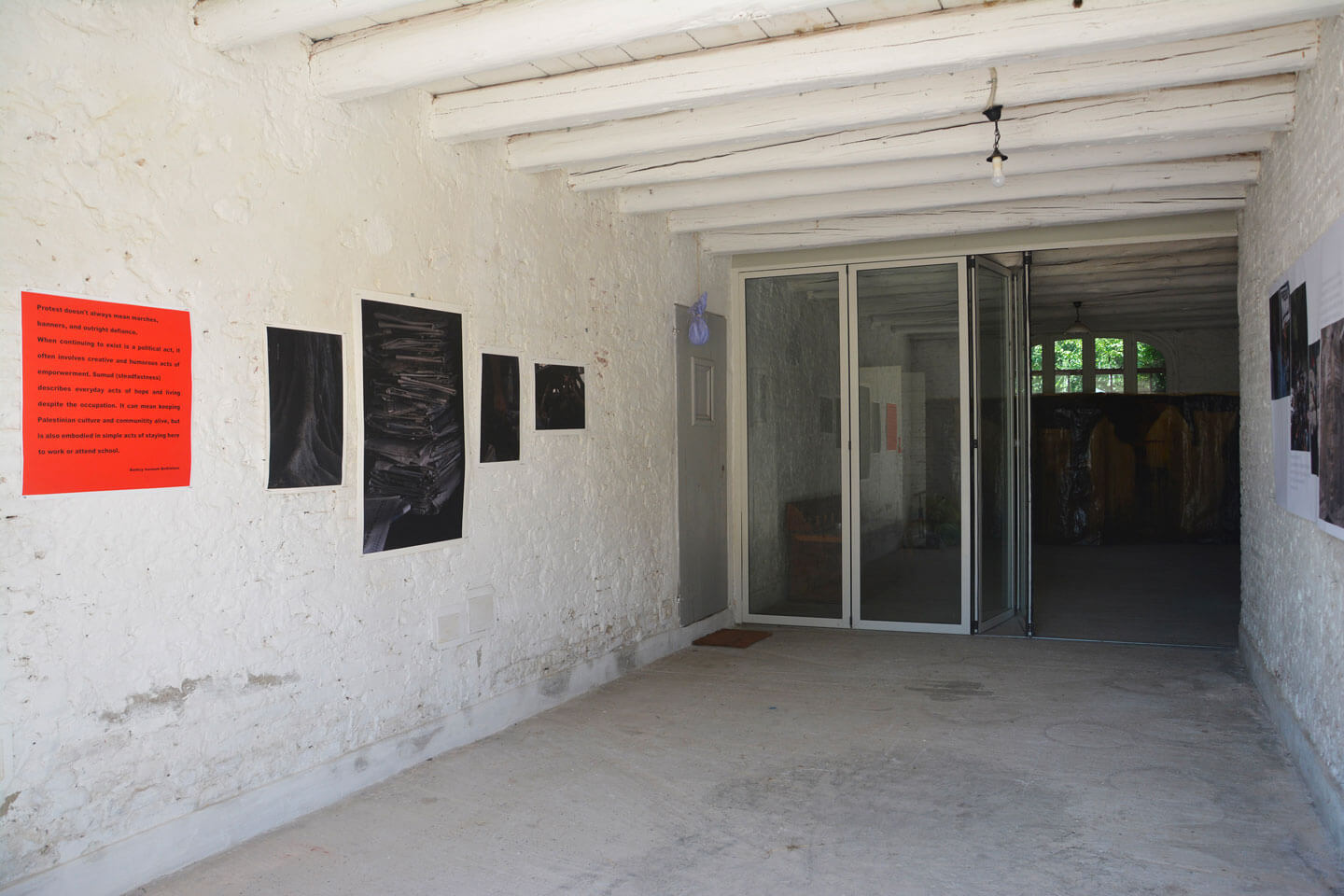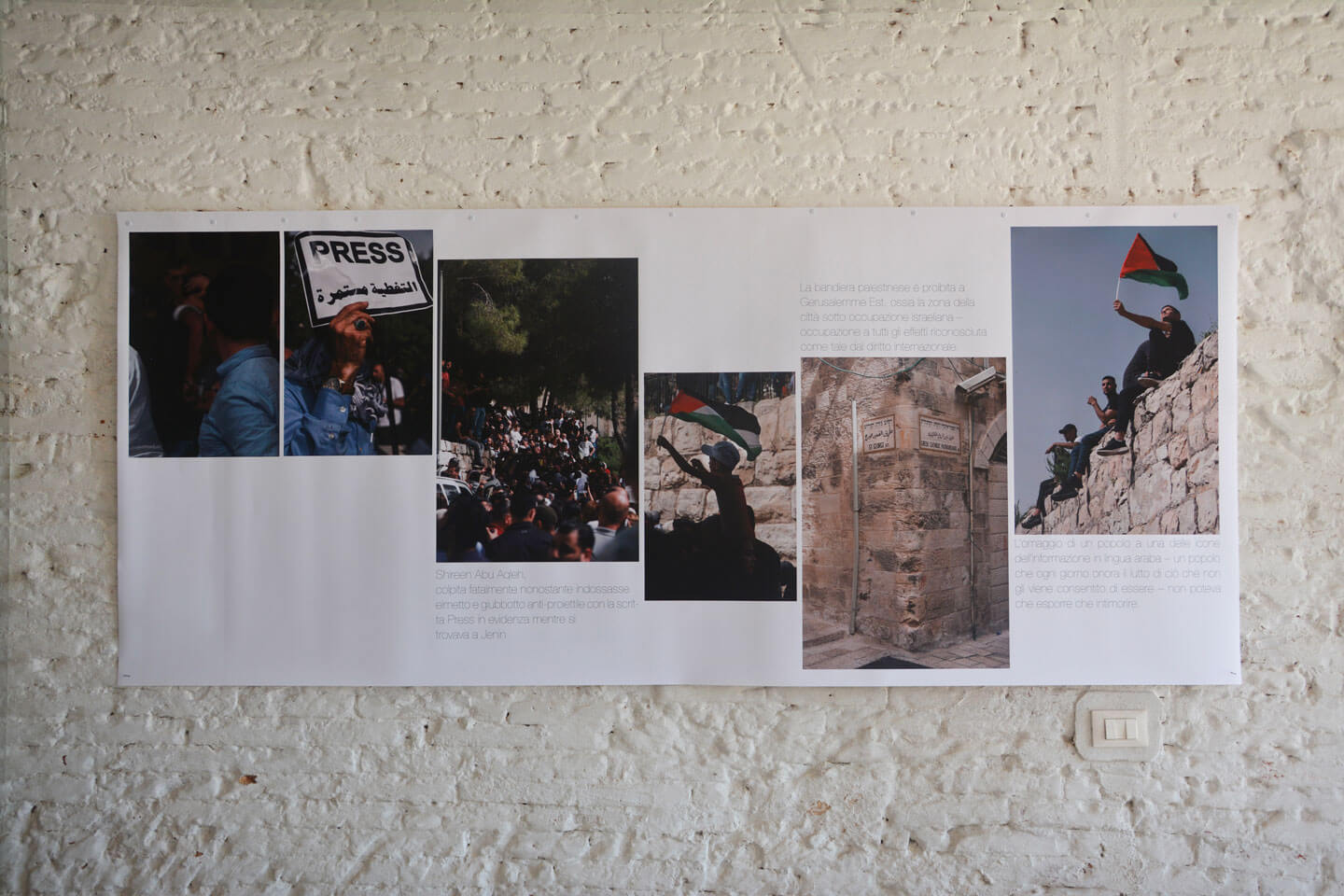Sofia Correale
SUMUD (2022)
40 x 60|Carta Hahnemühle Bamboo
70 x 100|Hahnemühle Bamboo
40 x 60|stampa fine art su carta Hahnemühle William Turner
40 x 60|stampa fine art su carta Hahnemühle William Turner
100 x 250|stampa fine art
Sumud, una parola, un suono, un ideale difficile da cogliere e da accogliere, ancor più difficile da comprendere e da abbracciare.
Sumud, resilienza, restare sulla propria terra, farlo ad ogni costo.
Sumud è lavorare i propri campi, camminare sulle proprie strade, costruire le proprie case, vivere la propria vita.
Una parola che per il popolo palestinese non significa solamente essere capace di sopravvivere o di riprendere forza per gestire e adattarsi allo stress e alle avversità, ma implica anche mantenere un risoluto atteggiamento di sfida alla sopraffazione e all’oppressione.
Questo lavoro è il risultato di un primo viaggio in questa Terra a me cara, nonché l’anticamera di una visione più grande volta a riflettere intorno all’emozione complessa quanto originariamente umana, la rabbia.
Qui è “il diritto palestinese alla rabbia”, un popolo che si trova tutti i giorni a vivere la piena consapevolezza di quanto sottile sia la linea che divide il vivere dal sopravvivere e di quanto sia allo stesso tempo incolmabile la distanza fra le due cose.
Anche coloro che rifiutano la violenza, come immorale e inutile, non possono umanamente esimersi dal capire il perché delle sue periodiche esplosioni. Sarebbe forse più vero (o valido) domandarsi il perché non esplodano più di frequente!
Il progetto non vuole mostrare bensì interrogare tutti quelli che almeno una volta hanno creduto di sapere, seduti sui divani di casa davanti a un telegiornale ingiustamente informato.
A tutti quelli che almeno una volta si siano limitati a guardare alla storia e alla questione palestinese come un evento del passato e per questo meno presente (attuale) e quotidiano.
Spero che il mio lavoro trovi una via nei sentimenti e nei pensieri dei fruitori, suscitando empatia e magari trasformandola in un tentativo di cambiamento. Le persone in Occidente possono svolgere un ruolo davvero efficace all’interno delle nostre società per agire contro l’occupazione e la sofferenza del popolo palestinese.
L’occupazione è continua, l’umiliazione è sotto gli occhi di tutti. Non passa un giorno senza pensieri.
Vedere per credere, diceva un antico proverbio che si perde nella notte dei tempi. Qui non poteva essere più veritiero.
Protesta non significa sempre cortei, striscioni e aperta sfida. Quando continuare ad esistere è un atto politico, spesso implica atti creativi e umoristici di potenziamento. Sumud («fermezza») descrive gli atti quotidiani di speranza e di vita nonostante l’occupazione. Può significare mantenere viva la cultura e la comunità palestinese, ma si concretizza anche in semplici atti di restare qui per lavorare o frequentare la scuola.
– Bansky Museum Bethlehem
Sumud, a word, a sound, an ideal difficult to grasp and accept, even more difficult to understand and embrace.
Sumud, resilience, staying on your own land, doing it at any cost.
Sumud is working your fields, walking on your own roads, building your houses, and living your life.
A word that for the Palestinian people does not only mean being able to survive or regain strength to manage and adapt to stress and adversity but also implies maintaining a resolute attitude of defiance of oppression and oppression.
This work is the result of the first trip to this land dear to me, as well as the antechamber of a greater vision aimed at reflecting around the emotion as complex as it was originally human, anger.
Here is “the Palestinian right to anger”, a people who find themselves everyday living in full awareness of how thin is the line that divides living from surviving and how unbridgeable the distance between the two is at the same time.
Even those who reject violence, as immoral and useless, cannot humanly fail to understand the reason for its periodic outbursts. It would perhaps be truer (or valid) to ask why they don’t explode more frequently!
The project does not want to show, but rather to question all those who at least once thought they knew, sitting on the sofas of the house in front of unjustly informed news.
To all those who at least once limited themselves to looking at history and the Palestinian question as an event of the past and therefore less present (current) and daily.
I hope that my work finds a way into the feelings and thoughts of the users, arousing empathy and perhaps transforming it into an attempt at change. People in the West can play a very effective role within our societies in acting against the occupation and suffering of the Palestinian people.
The occupation is continuous, the humiliation is there for all to see. Not a day goes by without thoughts.
Seeing is believing, said an ancient proverb that is lost in the mists of time. Here it couldn’t be more truthful.
Protest doesn’t always mean marches, banners, and outright defiance. When continuing to exist is a political act, it often involves creative and humorous acts of empowerment. ‘Sumud’ (“steadfastness”) describes the everyday acts of hope and life despite the occupation. It can mean keeping Palestinian culture and community alive, but it is also embodied in simple acts of staying here to work or attend school.
– Bansky Museum Bethlehem






